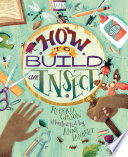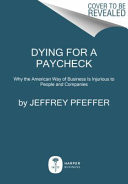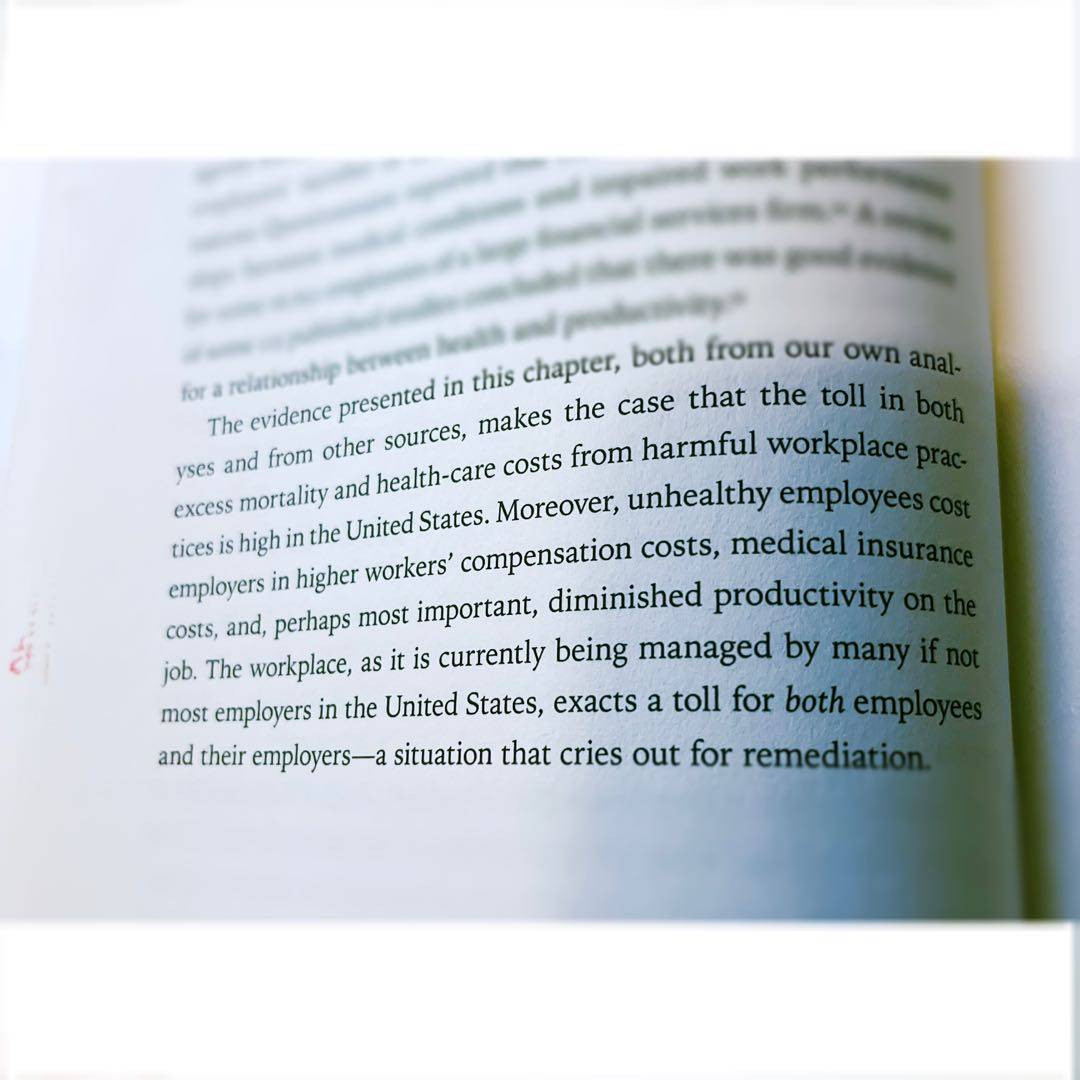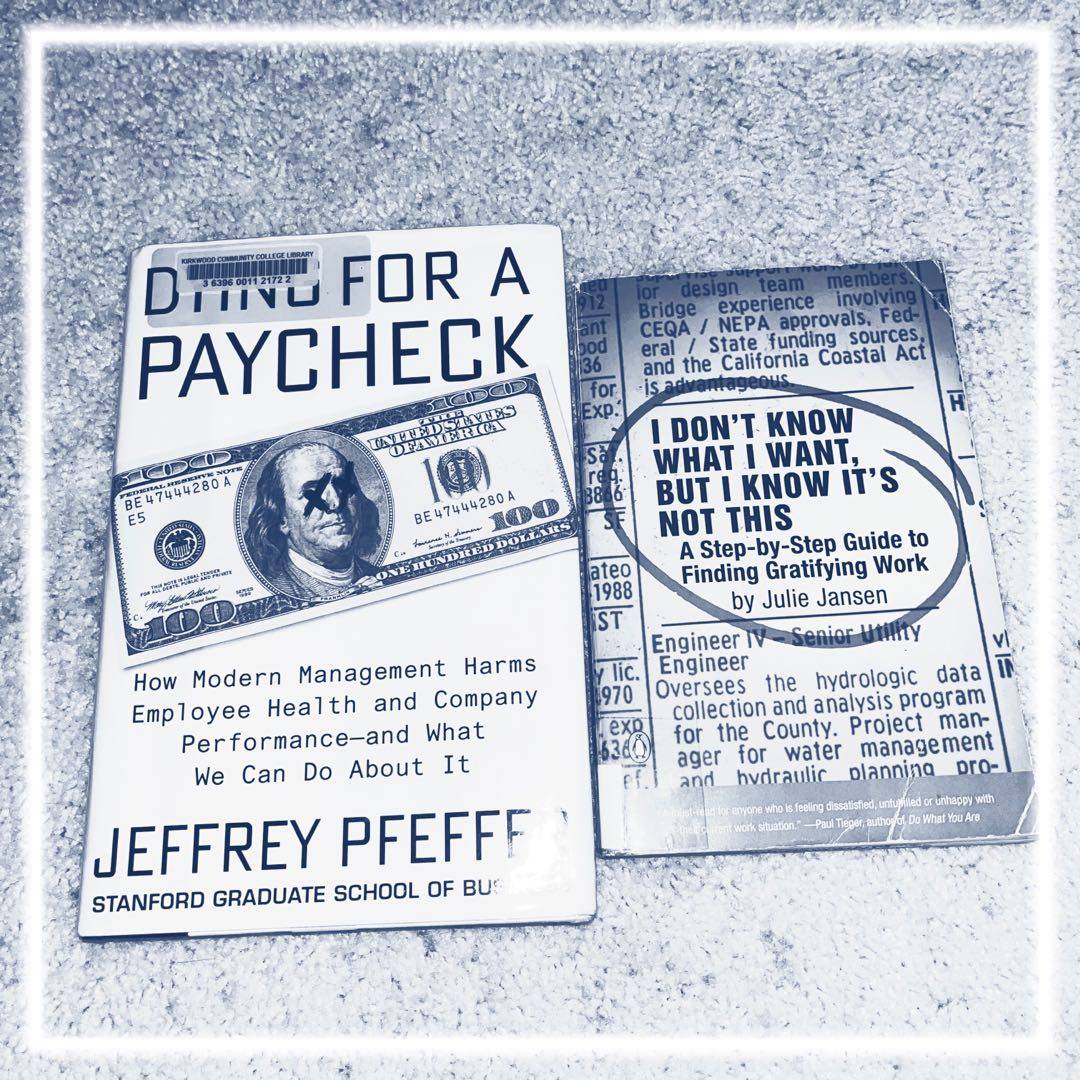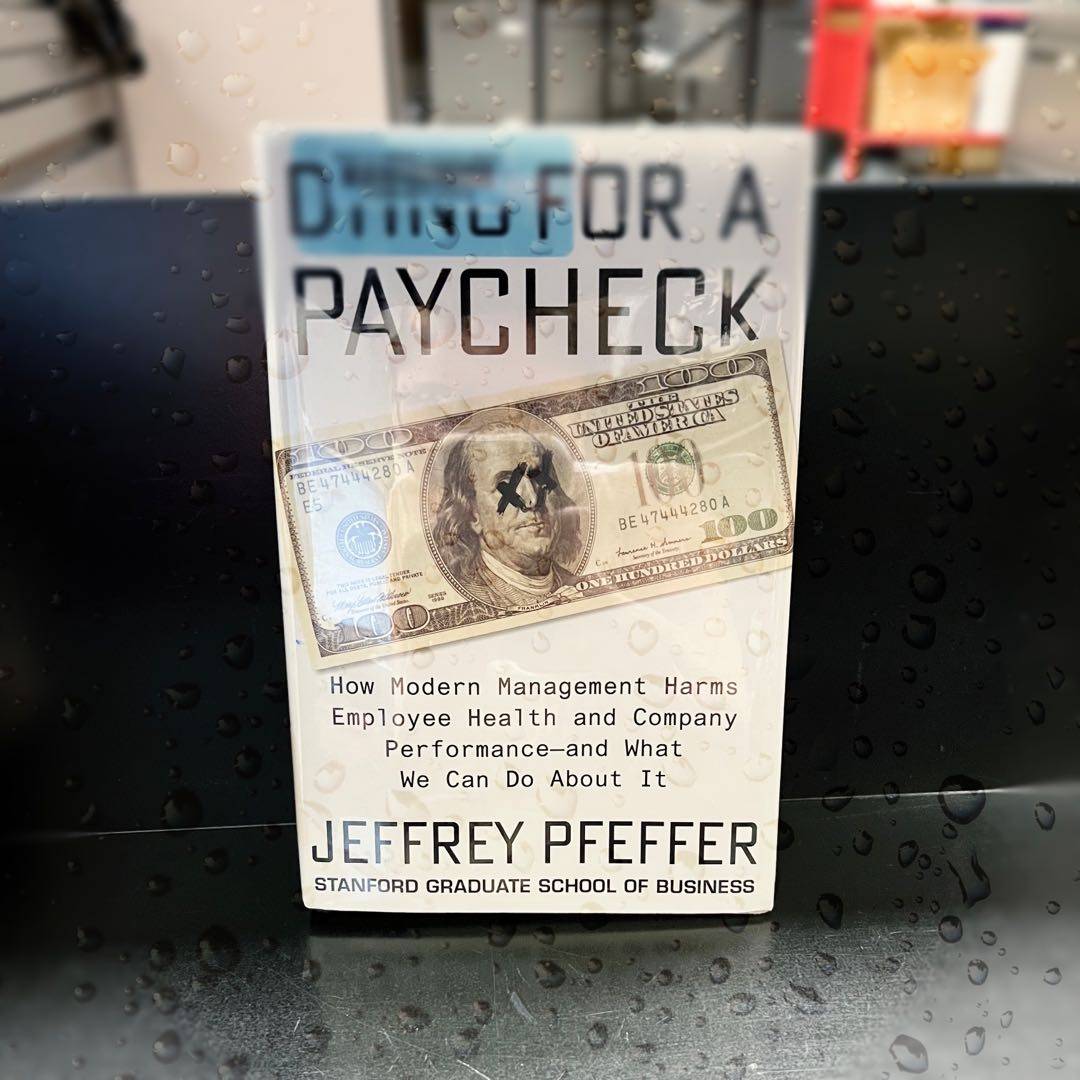
While much of the individual facts cited were interesting, Pfeffer‘s critique falls short for me in that he is examining a systemic problem yet doesn‘t consider at all the role that our economic system (capitalism) plays in this crisis. As if Marx hadn‘t already identified many of these issues in the 19th c. when he wrote Capital 🙄 Many of the issues disproportionately affect lower income people, yet he mostly focuses on white collar examples.







